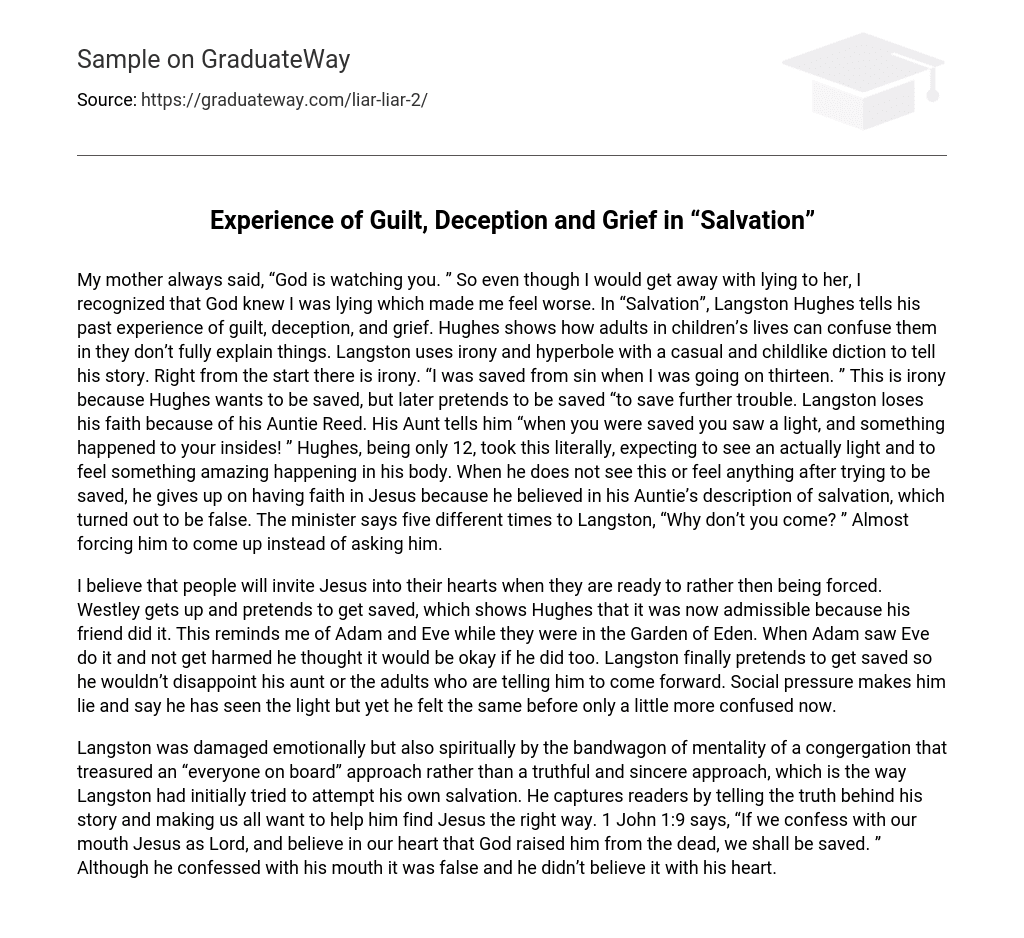My mother always said, “God is watching you. ” So even though I would get away with lying to her, I recognized that God knew I was lying which made me feel worse. In “Salvation”, Langston Hughes tells his past experience of guilt, deception, and grief. Hughes shows how adults in children’s lives can confuse them in they don’t fully explain things. Langston uses irony and hyperbole with a casual and childlike diction to tell his story. Right from the start there is irony. “I was saved from sin when I was going on thirteen. ” This is irony because Hughes wants to be saved, but later pretends to be saved “to save further trouble. Langston loses his faith because of his Auntie Reed. His Aunt tells him “when you were saved you saw a light, and something happened to your insides! ” Hughes, being only 12, took this literally, expecting to see an actually light and to feel something amazing happening in his body. When he does not see this or feel anything after trying to be saved, he gives up on having faith in Jesus because he believed in his Auntie’s description of salvation, which turned out to be false. The minister says five different times to Langston, “Why don’t you come? ” Almost forcing him to come up instead of asking him.
I believe that people will invite Jesus into their hearts when they are ready to rather then being forced. Westley gets up and pretends to get saved, which shows Hughes that it was now admissible because his friend did it. This reminds me of Adam and Eve while they were in the Garden of Eden. When Adam saw Eve do it and not get harmed he thought it would be okay if he did too. Langston finally pretends to get saved so he wouldn’t disappoint his aunt or the adults who are telling him to come forward. Social pressure makes him lie and say he has seen the light but yet he felt the same before only a little more confused now.
Langston was damaged emotionally but also spiritually by the bandwagon of mentality of a congergation that treasured an “everyone on board” approach rather than a truthful and sincere approach, which is the way Langston had initially tried to attempt his own salvation. He captures readers by telling the truth behind his story and making us all want to help him find Jesus the right way. 1 John 1:9 says, “If we confess with our mouth Jesus as Lord, and believe in our heart that God raised him from the dead, we shall be saved. ” Although he confessed with his mouth it was false and he didn’t believe it with his heart.





